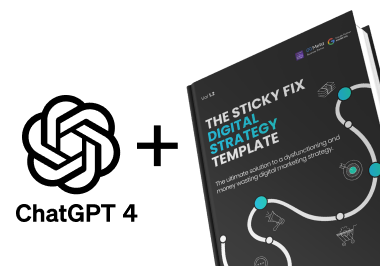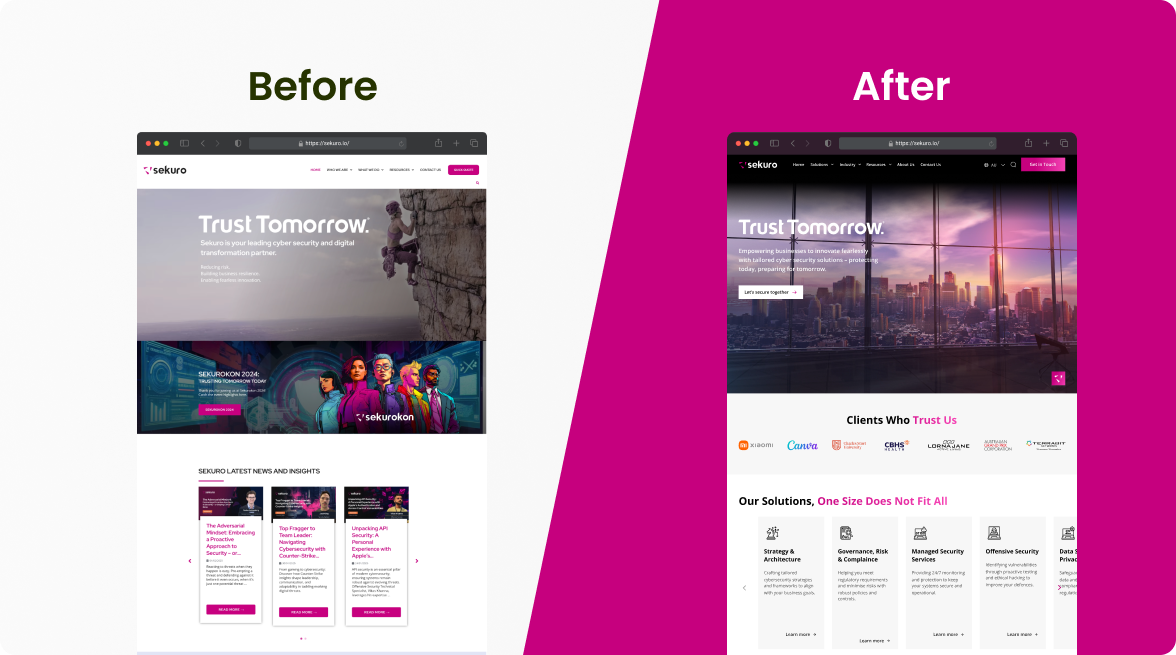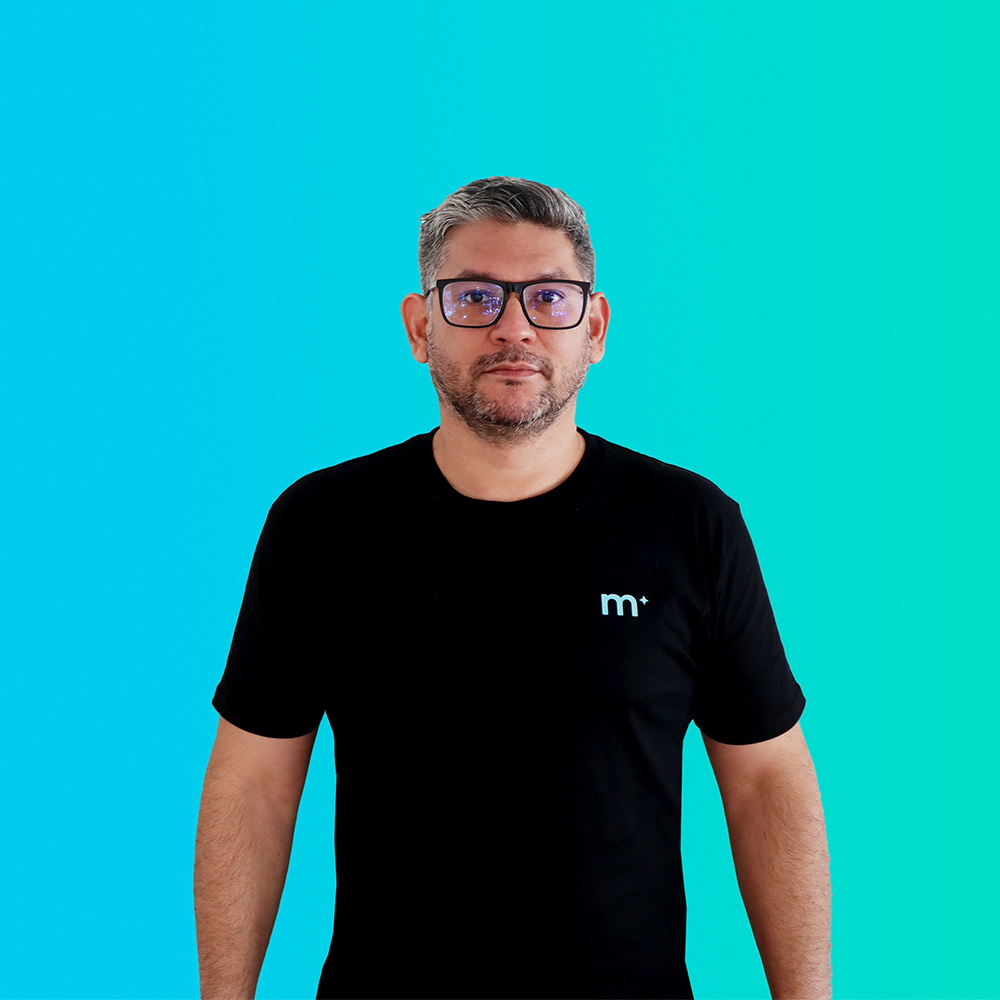AI search is no longer a futuristic concept, it’s already reshaping how we seek out answers and recommendations. If you’ve ever typed a question into ChatGPT or used Siri to find “the best family lawyer near me,” you’ve experienced the power of AI-driven search engines in action. It’s only going to get better from here and change how SEO works today forever.

Think back to the last time you Googled something like “Can my landlord evict me without notice?” or “Do I need a will if I’m under 30?” You were probably feeling stressed, short on time, and just needed a clear answer. Not a 2,000-word blog filled with legal jargon. That’s where AI-powered search is already changing the game, giving you quick, conversational responses that directly address your question. And this shift is already reshaping SEO.
From Keywords to AI Search Engines
Online search is becoming less complex. Not too long ago, you would find the information you needed in a few keywords, skim through a list of links, and hope to find what you needed. However, with the rise of large language models (LLMs), search is becoming more intuitive, contextual, and personal. Instead of a list of links, users now get direct answers, like the AI response feature at the top of Google’s search.
AI platforms like ChatGPT, Perplexity, and Google’s Gemini are redefining what it means to “Google something.” These platforms don’t just search, they now generate. They summarise, explain, and even recommend, so they don’t just help users find your content, they become the content.
This shift has sparked the rise of Generative Engine Optimisation (GEO), a new approach to ensuring that your content isn’t just searchable but useful and visible within AI-generated results.

This shift poses both a challenge and an opportunity for businesses, especially those in highly competitive fields. Traditional SEO tactics aren’t enough anymore. To stay visible, you need to adapt fast.
Understanding AI Search Engines
If you’re building a website today, it’s not enough to think only about how it ranks on traditional search engines like Google. AI search engines—like ChatGPT, Perplexity, and Gemini—are quickly changing how people find information online. These tools don’t just match keywords, they now interpret natural language, understand context, and prioritise usefulness over length, technicality or complexity.
Traditional SEO focuses on things like backlinks, engagement time, title tags, and keyword density. While those still matter somewhat, AI search adds a new layer. These engines aim to answer questions. That means your content needs to be structured in a way that is easy for AI to understand and summarise.
For example, instead of writing a long, generic article about “how to apply for a business loan,” break your web page information into sections that clearly address specific questions:
- Who is eligible?
- What documents do I need?
- How long does it take?
- What are common mistakes?
This makes it easier for AI models to pull accurate responses directly from your page.
Another way to optimise for AI is to consider how your website could act like an assistant. This doesn’t mean installing a chatbot (although that helps)—it means making sure your site guides users from question to answer to action. Think contextuality, efficient, and easy to understand.
Let’s say you’re a car insurance broker in Australia, and someone asks online: “Do I need insurance before registering a car in NSW?”
If your website has a clearly written section that says something like:
“Yes, in New South Wales, you need Compulsory Third Party (CTP) insurance—often called a Green Slip—before you can register your car. This covers injuries to others if you’re in an accident.”
That’s the kind of answer AI search engines are looking for. It’s clear, accurate, and easy to understand. Because it directly answers a standard question, an AI like ChatGPT or Google’s Gemini might grab that response, quote your site, and even link back to you. That means free traffic from people who trust your answer and now see you as the expert.
This is what optimising for AI search is all about: writing in a way that helps both the person and the AI. Think less about stuffing keywords and more about being the helpful expert who gives the best answer in the shortest time.
The Shift in User Behaviour
You’ve probably noticed it yourself, the way you search has changed.
You don’t type “best mortgage broker in Cairns” anymore. You say, “Hey Siri, who’s the best mortgage broker near me?” or ask a full question like, “Do I need a pre-approved mortgage to buy a house in Queensland?”

This change reflects a more profound behavioural shift. People want answers quickly, not options. They expect clarity, speed, and ease. AI-generated summaries like the ones offered by ChatGPT and Google Gemini are feeding that demand. However, this also means users might never click on your site if they already get their answer in the search result.
To stay visible, your website needs to evolve with how people search. One way to do that is by creating deeper, high-quality content that goes beyond a quick answer. If the AI summarises the basics, your site should offer the next layer—real expertise, practical examples, checklists, comparisons, or step-by-step guides.
For instance, instead of just answering “Do I need a pre-approved mortgage?”, your article could walk users through the benefits of pre-approval, how long it takes, what documents they’ll need, and common mistakes to avoid. That way, the AI might give a brief summary in search, but still direct serious readers to your site for more.
Another smart move is structuring your site for easy scanning—use FAQ sections, headings written in natural language, and clear subtopics. This makes it easier for AI to understand your content, and easier for users to stick around once they land on your site.
Challenges for Traditional SEO Strategies
For years, traditional SEO relied on click-through rates, keyword stuffing, and backlinks. But AI doesn’t care about those things in the same way.
Imagine that you’re publishing an article answering the question, “What’s the best warehousing management system in Australia?” AI search engines read the article, summarise it, and deliver the answer to the user with a small referral link. But now, users may never need to click because they already know the answer.
Click-through rates are dropping because AI is getting better at delivering what people want without sending them to your site. So, what can you do?

Adapting SEO Strategies for AI Search
Let’s discuss how we can adapt to AI search and what Generative Engine Optimisation (GEO) means. Unfortunately, we can not fight the shift that is occurring, but we can try to work with what we have and maximise our visibility.
Traditional SEO is about getting your website to rank in search results. AEO (Answer Engine Optimisation) is about providing short, direct answers to questions. GEO takes it a step further. It’s about making your content useful to AI tools like ChatGPT and Google Gemini, which may summarise, repurpose, or even rewrite your content to answer user queries.
To give your content the best chance of being picked up and credited by AI, here are three easy things you can do:
- Help AI understand your content clearly
Use structured data like schema markup, which is a bit of code that tells Google exactly what your page is about (like a recipe, product, or FAQ). This helps AI tools pull the right information from your site quickly and accurately. - Write the way people talk
Focus on natural, conversational language. Instead of stiff or overly technical writing, think about how someone would ask the question out loud—for example, “How much deposit do I need to buy a house in Queensland?” Then answer it in the same clear tone. - Follow Google’s quality content guidelines (E-E-A-T)
Make sure your content shows:
- Experience (real-world knowledge or use)
- Expertise (you know your topic well)
- Authoritativeness (you or your brand are a trusted source)
- Trustworthiness (your site feels reliable and transparent)
The better your content meets these standards, the more likely it is that AI will use it—and credit you for it.
Ethical Considerations and Best Practices
You can trick AI search engines, for a while, but without long-term success. Shortcuts like stuffing AI-detectable keywords or mimicking human content too closely often backfire.
It’s better to play the long game. Build content around real questions, genuine value, and strong ethical standards.
The recent controversy over ChatGPT generating Studio Ghibli-style images and “artwork” highlights the growing tension between innovation and intellectual property regarding AI generation. Hayao Miyazaki’s work is known for its hand-drawn beauty, emotional depth, and philosophical nuance. The idea that an algorithm can mimic his signature style, which he works on for months or years, without understanding its soul raises critical questions.
AI can replicate Miyazaki’s surface aesthetics, but it cannot grasp the narrative warmth or environmental sensitivity that define a Ghibli film. When AI engines generate Ghibli-style content without licensing or attribution, they’re not just borrowing a look, they’re commodifying the legacy of a well-loved artist.

For content creators and marketers, this emphasises ethical AI usage and knowing the boundaries between homage and exploitation. This issue highlights the need for transparency and ethical use.
After all, where is the line between innovation and imitation? How do we make sure that AI tools, powerful as they are, don’t undermine the rights of original creators?
This isn’t just a niche problem in the art world. It’s a warning for all industries, including journalism, education, law, and marketing to tread carefully when using generative AI. The lesson is clear: transparency, consent, and respect for original work must guide how we create and publish AI-enhanced content.
For now, the laws are still being written, and boundaries continue to be pushed. But we can still choose to act ethically. If we’re drawing on someone else’s work, let’s make sure we bring enough of our own perspective and creativity to turn it into something new. The future of AI is about giving everyone the tools to create with originality.
Embracing AI Search for Future SEO Success
AI search is evolving at a pace we haven’t seen before. Today, users find and engage with content is changing too. From zero-click answers to generative summaries, businesses can no longer rely on traditional SEO playbooks to stay visible.
It’s time to think differently. Start by treating your content as a conversation, not just with your audience, but with the AI models that now stand between you and your users. GEO is a mindset shift. It’s about creating content that answers real questions, respects ethical boundaries, and reflects both expertise and originality.
Like a Miyazaki film, where every frame is purposeful and layered with meaning, your digital content must also carry depth. Let it speak with clarity. Let it hold value. And let it show your audience (and the AI) that you’re the expert, a trusted voice in a crowded world of infinite information.
If you’re exploring how to adapt regarding SEO, we’re here to collaborate, not just consult. Reach out for a conversation, and let’s rethink how your brand shows up in the age of AI search engines.





















































